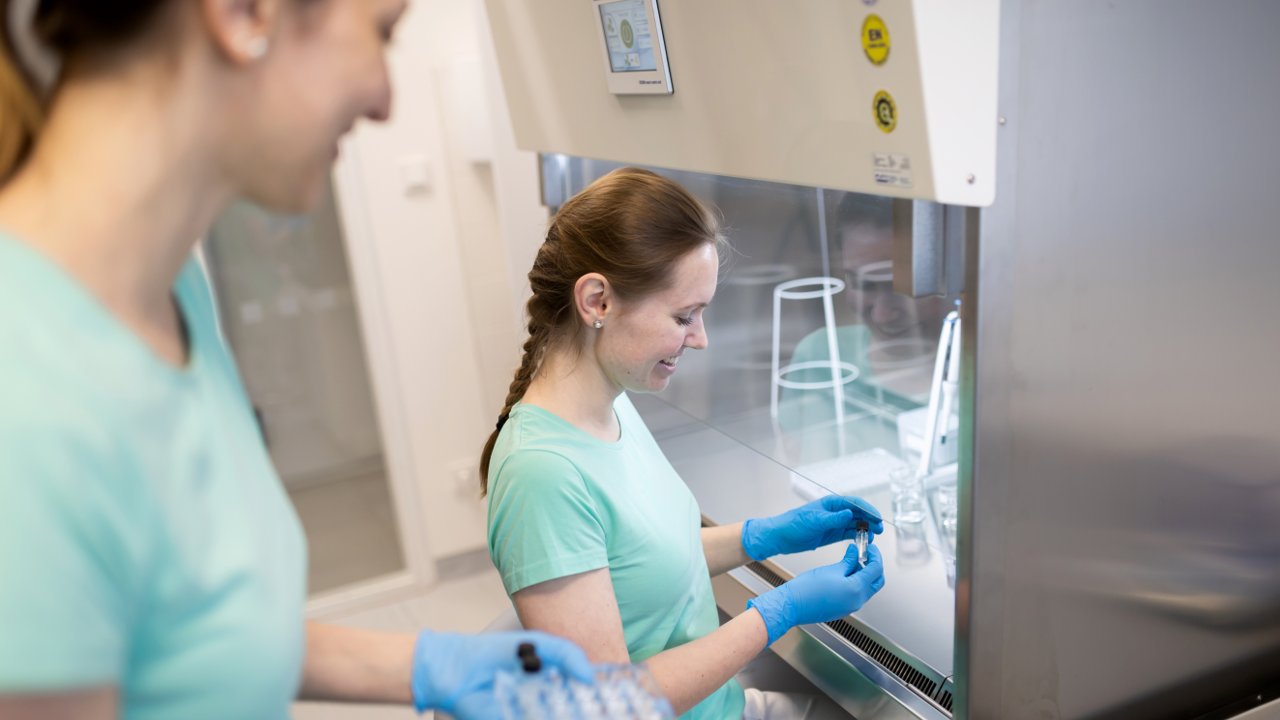The main goal of Lipidica, a.s. is to develop and promote effective, laboratory-based, non-invasive and early diagnosis of malignant neoplasms. The project is based on fundamental research in the use of lipidome analysis, coupled with mathematical modelling and artificial intelligence algorithms. Lipidica is prepared for ongoing collaboration with the best clinical and research institutions in the practical application of diagnostic methods to help save lives.

Establishment of Lipidica, a.s.
Prof. Michal Holčapek’s research team is focused on the analysis of lipids for more than 20 years. He received the financial support of many grant projects including the most prestigious ERC Advanced grant in 2023 and earlier 2013 ERC CZ Starting grant.
Their project, based at the University of Pardubice, was focused on researching the potential role of lipids in early cancer diagnosis. The important outcomes of this project were two European patent applications concerning new possibilities of early detection of pancreatic cancer or other types of cancer based on the lipidomic analysis of blood. The results of further follow-up research were subsequently published in the prestigious journal Nature Communications, among others. Further optimization of the method and the development of new software tools to automate the procedure were also in progress.
FONS JK Group, a.s. is a company with proven expertise in the field of laboratory diagnostics and health information systems. They expressed an interest in this research and the related investment opportunity, based on the excellent experimental results which demonstrated both the accuracy of the detection and the strong patent protection of the technology.
Negotiations between the University and FONS led to the establishment of a joint stock company Lipidica, a.s.
The mission of Lipidica, a.s.
Our main mission is to clinically validate the application of the LDPC test method for monitoring groups of people at high risk of pancreatic cancer and its subsequent use in clinical practice. Another goal is the implementation of a national programme for early detection of the disease (a screening programme).
Currently, there is no approved non-invasive method for early detection of pancreatic cancer. This cancer has one of the highest mortality rates of all cancers, mainly due to late diagnosis when there is no effective treatment. Early diagnosis significantly improves the outcomes of existing treatments and patient’s chances of survival. We have plans to extend our method and apply it to other types of cancer, as changes in the concentrations of the lipid molecules monitored in the blood have a similar profile for other types of cancer, which could lead to the use of a single test procedure in the future.
Find out how you can actively collaborate with us here.
Lipidica Laboratory – Medical Laboratory
Work procedures and rules in the laboratory are set and observed in accordance with the requirements of the standard ČSN EN ISO 15189:2013 – Medical laboratories – requirements for quality and competence. The Lipidica Laboratory was successfully assessed by the accreditation body of the Czech Accreditation Institute (CAI) and received The Certificate of Accreditation.
The Lipidica Laboratory applies a flexible scope of accreditation.
The flexible scope of accreditation means the scope of accreditation enabling continuous development of the services covered by the accreditation. The laboratory is therefore authorized to make, for example, changes in the methodology (while maintaining the measurement principle) and in other parameters within the limits of competence confirmed by the accreditation body. Changes are precisely defined and described in the laboratory’s quality system documentation. They are not subject to immediate assessment by the accreditation body and are assessed during the following supervisory visit by the accreditation body.
The specific granted scope is indicated in the List of activities within the flexible scope of accreditation.
Information for patients and users is in accordance with the requirements of the standard ČSN EN ISO 15189:2013, article 5.4.2 listed in the Laboratory manual, which is available on request.
Documents:
Certificate of Accreditation ČSN EN ISO 15189:2013 (EN version)
List of activities within the flexible scope of accreditation (EN version)
Scientific Council
The Scientific Council is made up of experts who can contribute to the company’s conceptual decisions and review the company’s draft concept papers in a multidisciplinary environment.
Members of the Scientific Council (in alphabetical order):
- prof. Ing. Michal Holčapek, Ph.D.
- RNDr. Ondřej Májek, Ph.D
- prof. MUDr. Bohuslav Melichar, Ph.D.
- prof. MUDr. Luboš Petruželka, CSc.
- prof. MUDr. Marek Svoboda, Ph.D.
- prof. MUDr. Jan Škrha, DrSc.
- prof. MUDr. Ondřej Urban, Ph.D.
- prof. MUDr. Tomáš Zima, DrSc., MBA
Our team

Ing. Zdeněk Jirsa
Chairman of the Management Board
Ing. Vojtěch Jirsa
Member of the Board of Directors and IT management
Ing. Petr Gabriel
Member of the Management Board
Prof. Ing. Michal Holčapek, Ph.D.
Strategic Development Partner
Ing. Karolina Kašparová
Business Director
Ing. Ondřej Peterka, Ph.D.
Senior Analyst
Mgr. Mária Kanásová
Analytical Chemist
Ing. Zuzana Dolečková
Analytical Chemist
Ing. Miloslav Benda
Financial and Economic Director
Martin Smejkal
Personnel Manager
Mgr. Libuše Švorcová
Quality Manager
PhDr. David Španiel
Operations Manager
MUDr. Helena Linhartová
Clinical Study Coordinator
Mgr. Jitka Beerová
Office Manager
